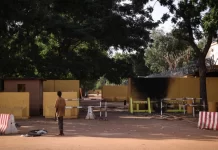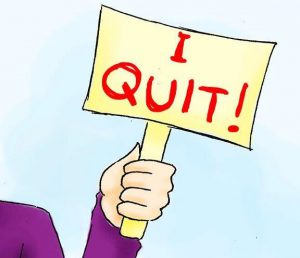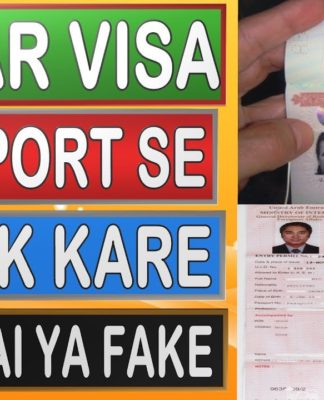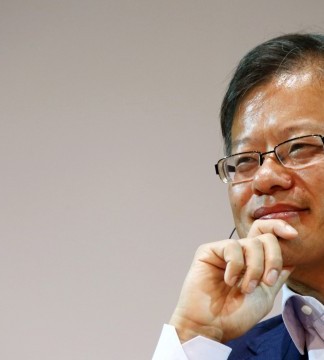‘Survivor of the Chinese Gulag’: Uighur refugee in France recounts her ordeal
Issued on: Modified:

After three harrowing years in Chinese re-education camps, Gulbahar Haitiwaji, a Uighur woman who had been lured back to China from France only to be arrested, interrogated and abused, recounts her ordeal in a just published book.
“In the camps, life and death do not mean the same thing as they do elsewhere. A hundred times over I thought, when the footfalls of guards woke us in the night, that our time had come to be executed. When a hand viciously pushed clippers across my skull, and other hands snatched away the tufts of hair that fell on my shoulders, I shut my eyes, blurred with tears, thinking my end was near,” writes Gulbahar Haitiwaji in her book, “Rescapée du Goulag Chinois” (“Survivor of the Chinese Gulag”), co-authored with Le Figaro journalist Rozenn Morgat and published in French on January 13 by Éditions des Équateurs.
For three years, Haitiwaji, of the Turkish-speaking, Muslim, Uighur minority, lived through the torment of Chinese re-education camps. In her book, the mother of two daughters recounts the interrogations, torture, hunger, brainwashing and forced sterilisations she experienced or witnessed. Beijing had imposed drastic surveillance measures against the Uighur population of her native Xinjiang province, under the guise of a “war on terrorism”, after a series of deadly attacks on civilians in 2014.
‘Making someone disappear is indeed possible’
Haitiwaji was born in 1966 in the vast north-western Chinese province. An engineer like her husband, she began working in the 1980s for an oil company in the town of Karamay. Discrimination against the Uighurs was already deeply ingrained at the time, and professionally, their prospects were slim.
In 2002, Haitiwaji’s husband, who could no longer bear the situation, decided to leave and look for work overseas. At first, he went to Kazakhstan and then to Norway, before settling down in France, near Paris, where he applied for asylum and, four years later, brought over his wife and daughters.
Over the years, the family gradually found its bearings. But in November 2016, everything changed.
Haitiwaji, then 50, received a phone call one day from her former company in China, summoning her to sign some official papers needed for her retirement. She had a bad feeling about it, knowing that exiled Uighurs were being watched and that in Xinjiang, the crackdown was in full swing. But the company insisted and despite her forebodings, she decided to go to China, only for two weeks.
Sure enough, it was a trap. Shortly after arriving, Haitiwaji was arrested and taken to the Karamay police station, where she was shown a photo of a young woman she knew all too well – one of her daughters, Gulhumar.
“She was posing in front of the Place du Trocadéro in Paris, bundled up in her black coat, the one I’d given her. In the photo, she was smiling, a miniature flag of East Turkestan [the name used by Uighurs to designate Xinjiang] in her hand, a flag the Chinese government had banned. To Uighurs, that flag symbolises the region’s independence movement. It was at the end of one of the demonstrations organised by the French branch of the World Uyghur Congress, which represents Uighurs in exile and speaks out against Chinese repression in Xinjiang,” Haitiwaji writes in her book. The Chinese authorities were accusing the daughter of terrorism and the mother would have to pay.
Haitiwaji was imprisoned and cut off from her family. “Nothing in Xinjiang is like in the rest of China. Making someone disappear is indeed possible. Worse still: it’s easy,” she says. For several weeks, she was locked away in a cell and the abuse began. She was considered a criminal, without knowing why.
“The guard came in one morning and chained me to the bars of the bed, without a word. That was two weeks ago. Since then, I’ve been living sitting against the side of the metal bed, my bottom in the dust. I can pull myself up onto the mattress for the night.”
A ‘school’ to re-educate the Uighurs
In June 2017, the authorities transferred Haitiwaji to “a school”, a re-education centre where the teachers are out to “eradicate Islamist terrorism” from the Uighurs’ minds. According to Amnesty International and Human Rights Watch, more than one million Uighurs are being or have been deported to these camps. The inmates there are subjected to intensive brainwashing. They are prohibited from speaking their native language and cameras monitor them constantly in their cells, the corridors and even the toilets. The days are spent on lessons in Chinese history and declarations glorifying President Xi Jinping. The propaganda is constant. Haitiwaji was forced to partake in military training: “Physically taxed to the limit, we no longer felt like talking. Our days were punctuated by the screech of the guards’ whistles, on waking, at mealtime, at bedtime.”
Women were also sent to be vaccinated, but, according to Haitiwaji, they were in fact being sterilised. She realised this when talking to other inmates: “During free time, many confided in me, ashamed that they no longer got their periods. They said their menstruation stopped right after the vaccination… I, who already stopped having my period, tried to reassure them. But deep inside, a terrible thought already began to take shape: Are they sterilising us?”
According to an investigation published last June by AP, the Chinese government has been subjecting Uighur women in Xinjiang to pregnancy tests and forcing them to get IUDs, undergo sterilisation or abort.
In November 2018, two long years after her arrest and at the end of a nine-minute summary trial, Haitiwaji was sentenced to seven years in prison. The sentence left her “no more than a shadow” of herself, a ghost: “In the twists and turns of the camp, cut off from the rest of the world, my perseverance crumbles. The gruelling routine is repeated over and over again, forming one long gruelling day.”
But thousands of kilometres away, her family was fighting to get news of her and, more importantly, to gain her release. Her daughter Gulhumar decided to speak out publicly. In February 2019, she launched a first appeal on FRANCE 24.

“My daughter doesn’t know it yet, but she has just triggered hostilities. She spoke out openly and accused China of inhumane treatment. She is the first collateral victim of the Xinjiang crackdown to do so. The consequences are equal in size to the risk that she took: gigantic,” says her mother in the book.
Daily newsletterReceive essential international news every morning
The matter was now in the hands of the Quai d’Orsay, the French foreign ministry. Diplomacy was finally set in motion, since Haitiwaji’s husband and daughters had refugee status in France. The negotiations were long, but eventually Haitiwaji was moved to an apartment and placed under house arrest.
In August 2019, after a brief trial, a judge from Karamay pronounced her innocent – just like that – and she was allowed to leave Xinjiang and join her family in France without serving out her sentence.
The relief was palpable, but the scars permanent: “I lost my mind in the camps, it’s true. But this is all very real. Nothing that I have experienced is the expression of a morbid fantasy by a prisoner exaggerating her condition. I was carried away, like thousands of others, in the mad whirlwind of China. China that deports. China that tortures. China that is killing its Uighur citizens.”
After these three years of “madness”, Haitiwaji has chosen to speak out openly, despite the danger to her and, especially, to her relatives who still live in China. She is now on a mission – to be the voice of “all these people reduced to less than men, less than women, under the brutal weight of oppression”.
This article was translated from the original in French.






























